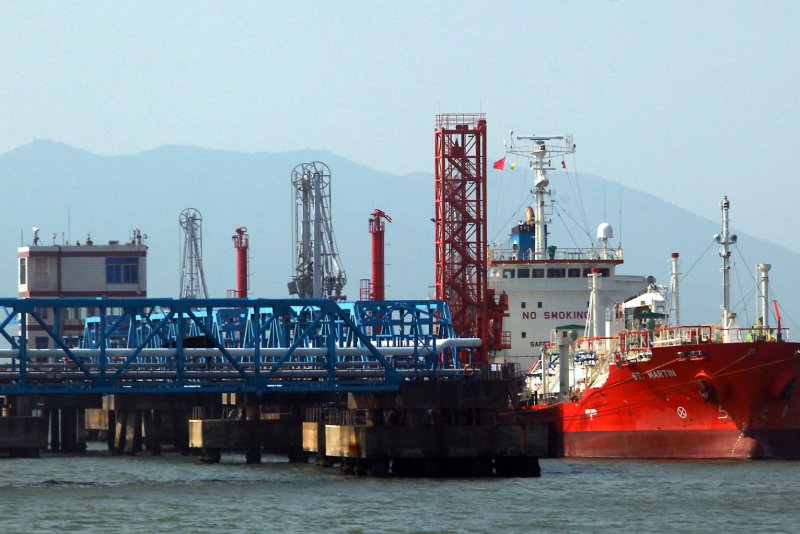Woodside Petroleum calls for Australia to take a lead in transportation fuels, the next potential phase for LNG demand growth. File photo by Stephen Shaver/UPI. |
License Photo
July 7 (UPI) -- Australian leaders should seize the momentum and ensure liquefied natural gas is available as a maritime fuel, a director at Woodside Petroleum said.
French energy company ENGIE moved early on the transition for maritime fuels by signing an agreement in 2015 with the Japanese shipping company NYK to build vessels powered by LNG. Woodside began switching to LNG-fuelling of its own supply vessels earlier this year.
Writing in The West Australian newspaper, Woodside Chief Operations Officer Mike Utsler said regional port authorities made the pioneering move last year to allow refueling offshore. A "quiet revolution" is underway, he wrote, as international shippers aim to clean up their fuel supplies by 2020.
"The global switch to cleaner marine fuels has been driven in part by concerns in Europe and Asia that sulfur dioxide emissions from shipping are contributing to increased incidence of heart and lung
disease," he wrote. "LNG is cleaner than diesel and much cleaner than the heavy fuel oil that has powered the commercial marine industry for decades."
Woodside CEO Peter Coleman said in April that "the next wave" of demand growth for LNG may come from commercial transportation. For regional leaders in Australia, Utsler said the potential exists to establish a "green corridor" that would put West Australia at the front of the line of emerging LNG demand.
French energy company ENGIE said in June that a vessel it docked at a port in Belgium, Zeebrugge, was the first to provide ship-to-ship supplies for LNG as a fuel. Bunkering, or the supply of fuel for use by ships in a seaport, was carried out at the port at the same time that cargo loading was taking place.
With international regulations calling for fewer emissions in the transportation sector, LNG serves a unique niche.
"West Australia should be at the centre of this shipping revolution, as both a major LNG producer and a region that ships thousands of cargoes of commodities to the world each year," Utsler wrote.















